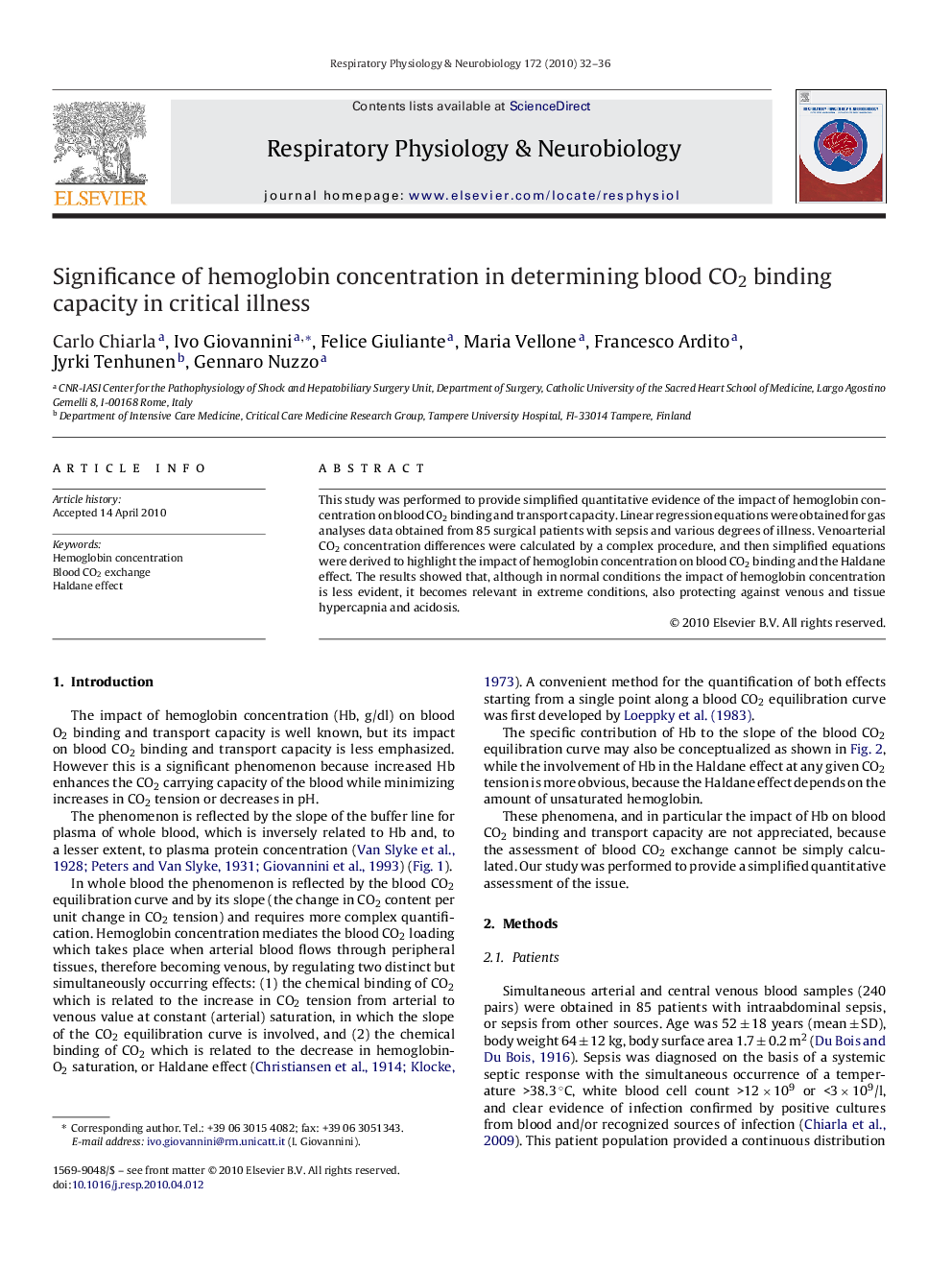| Article ID | Journal | Published Year | Pages | File Type |
|---|---|---|---|---|
| 2847666 | Respiratory Physiology & Neurobiology | 2010 | 5 Pages |
Abstract
This study was performed to provide simplified quantitative evidence of the impact of hemoglobin concentration on blood CO2 binding and transport capacity. Linear regression equations were obtained for gas analyses data obtained from 85 surgical patients with sepsis and various degrees of illness. Venoarterial CO2 concentration differences were calculated by a complex procedure, and then simplified equations were derived to highlight the impact of hemoglobin concentration on blood CO2 binding and the Haldane effect. The results showed that, although in normal conditions the impact of hemoglobin concentration is less evident, it becomes relevant in extreme conditions, also protecting against venous and tissue hypercapnia and acidosis.
Related Topics
Life Sciences
Biochemistry, Genetics and Molecular Biology
Physiology
Authors
Carlo Chiarla, Ivo Giovannini, Felice Giuliante, Maria Vellone, Francesco Ardito, Jyrki Tenhunen, Gennaro Nuzzo,
